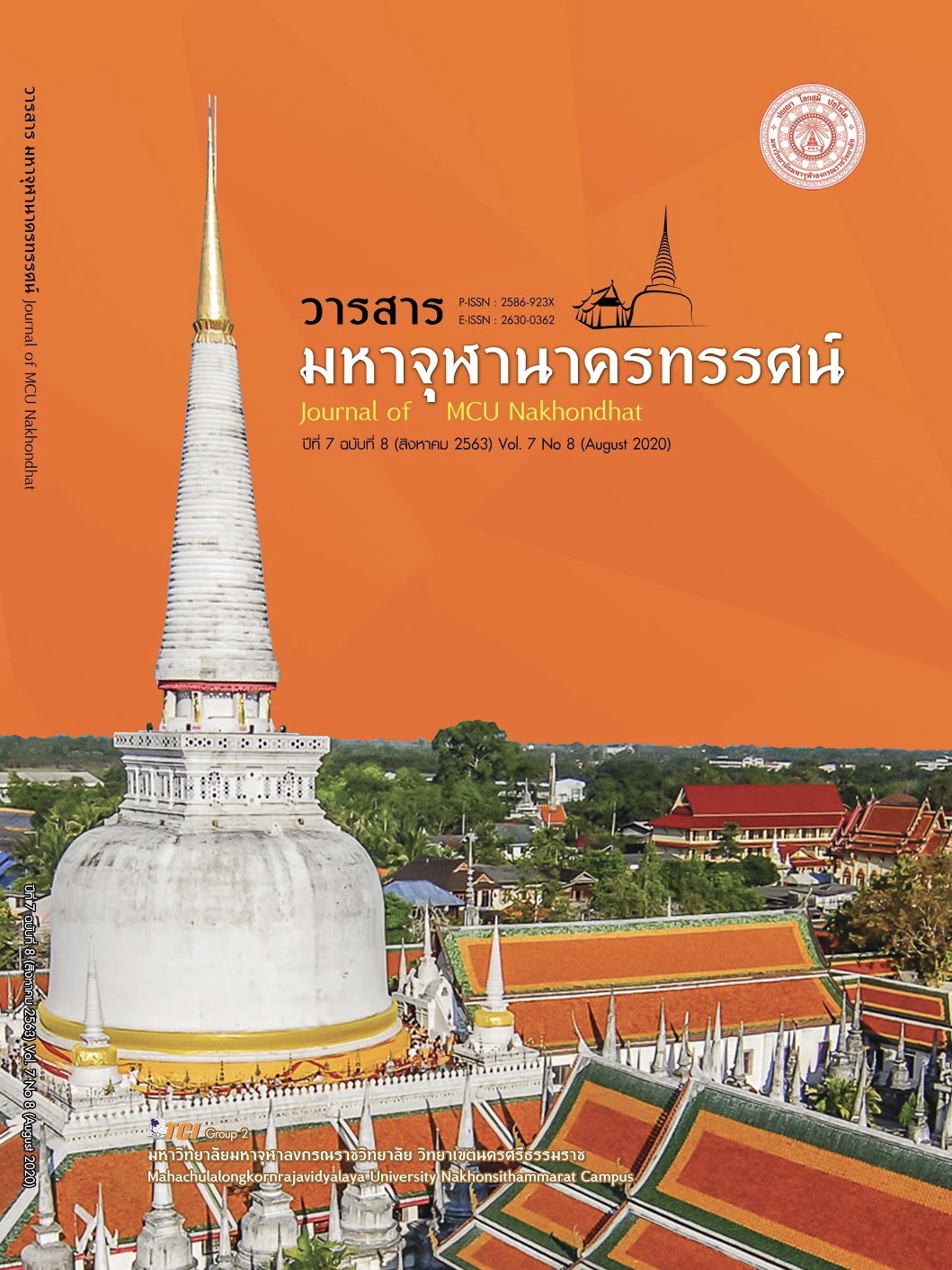THE CREATION OF “MINDFULNESS” TO CHANGE THE MIND AND BEHAVIOR OF PRISONER ABROAD
Main Article Content
Abstract
The principle of “mindfulness” is the Dharma principle in the Lord Buddha’s medicine which has been proven to be effective in applying to correct the mind, believes that there is a chance and behavior For prisoners Since human nature, all actions start at the “idea” the decision to commit a crime is the result of addiction and knowledge known as “wit” of those who believe that the action benefits themselves and believes that there is a chance That can escape the law. He therefore leads to a “criminal”, which is lacking in the positive intelligence of the “Idea” and “knowledge” for “prisoner” is the person that the criminal justice system has proven. In truth, offender. If having the opportunity to go through the process of creating “mindfulness”, it can be changed to change the mind, attitude and behavior to be a good citizen of society again.
Studies have shown that in the United States, Canada, and Japan, the method of practicing “mindfulness” with prisoners leads to concentration. Have reviewed themselves, considered themselves, adapting their thoughts, behaviors in pre – release activities to release prisoners for “Return good people to society” and the use of Buddhist principles, such as mindfulness, reason, hiriy ottappa, precepts, Noble Truth 4, Makkah 8, etc. and using the Buddhist principles to create “mind, new mind set, behavior.” Who are good citizens of society again. There is a new life style that is better and does not make mistakes again.
According to the above facts, it is suggested to introduce the Buddhist Dharma, especially the “mindfulness” and “mindfulness processes” to prisoners in Thailand, that is, the government by the Department of Corrections. There should be a policy for creating “mindfulness” and “mindfulness processes” in prison. Training and evaluation, create speakers and organize learning processes. And implementation. To achieve the purpose of prisoner rehabilitation and actually achieve the actually achieve the goal of sustainable prisoner development.
Article Details
References
พระเมธีวราภรณ์ (ประยูร ธมฺมจิตฺโต). (2541). สติในชีวิตประจำวัน คติธรรมสอนใจเพื่อใช้เตือนตน. (พิมพ์ครั้งที่ 3). กรุงเทพมหานคร: มูลนิธิพุทธธรรม.
พระพรหมคุณาภรณ์ (ป.อ. ปยุตโต). (2535). พจนานุกรมพุทธศาสน์ ฉบับประมวลศัพท์. (พิมพ์ครั้งที่ 14). นนทบุรี: ธนธัชการพิมพ์.
พระพรหมคุณาภรณ์ (ป.อ. ปยุตโต). (2549). พุทธธรรมฉบับปรับปรุงและขยายความ. (พิมพ์ครั้งที่ 13). กรุงเทพมหานคร: สหธรรมิก.
Bishop, S. R. et al. (2004). Mindfulness:A proposed operational definition Clinical Psychology. Science & Practice , 11(3), 230–241.
Lozoff, B. & Fleet, M. (2017). Dharma in Hell: The Prison Writings of Fleet Maull. South Deerfield: U.S.A.
G. Alan Marlatt. (2002). Buddhist Philosophy and the Treatment of Addictive Behavior. Cognitive and Behavioral Practice, 9(1), 44–50.
Kobai, S. W. (2017). Sitting inside Buddhist Practice in America’s Prisons. South Deerfield: U.S.A.
Paramabandhu, G. (2014). Buddhist Approaches to Addiction Recovery. Religions, 5(4), 985 – 1000.
Swarna, W. & Shaun, B. (2016). Mindfulness for Addiction Recovery: A Cognitive Disciplinary Preventive Approach to Avoid Relapse into Substance Abuse. Retrieved April 1, 2020, from https://www.semanticscholar.org/ paper/Mindfulness – for – Addiction – Recovery%3A–A–Cognitive–to–Weerasinghe–Bartone/2d9bbf66bffa7a7d4 0dd28f4149e2a4ce1528b8b
William, L. W. (2012). Buddhism and Addiction Recovery:An Interview with Kevin Griffin. Retrieved April 1, 2020, from http://www.williamwhite papers .com/pr/Buddhism%20%26%20Recovery%20Interview%20Kevin%20Griffin.pdf


